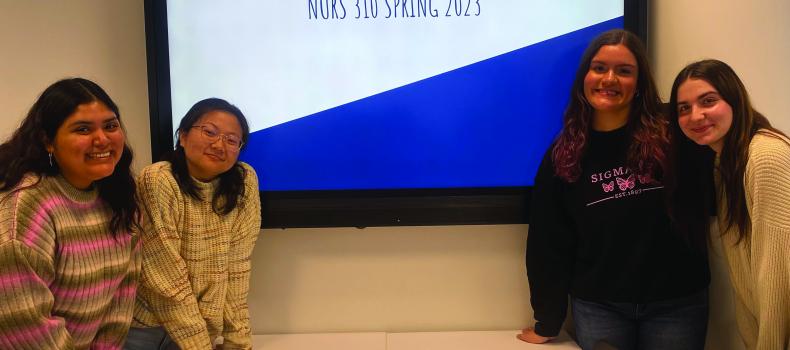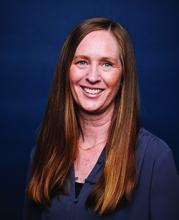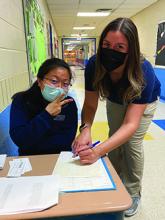As they waited for their health screenings from Frances Payne Bolton School of Nursing students in the spring, the Cleveland school children in the queue started to become antsy. So, rising fourth-year nursing student Bernice Eads got creative.
“I started playing Simon Says,” she recalled. And because many of the kids spoke Spanish, she led the game in English and Spanish, her first language.
Eads and her fellow rising fourth-year students Jane Wu, Arilay Zapien and Mia Morgan were at Cleveland Metropolitan School District’s Buhrer Dual Language Academy, where they helped school nurse Patricia Breslin, RN, conduct height, weight and vision screenings to identify children’s healthcare needs for appropriate interventional measures. And, Breslin said, they served as role models for the kindergarten through eighth grade students.
The experience is part of the community-nursing curriculum required at Frances Payne Bolton School of Nursing, in which students are assigned to one of five different sites such as schools, recreation centers, adult day care centers and homeless shelters.
“It’s a basic introduction to bridge the gap between what you’re seeing in the hospital and your community,” said Shannon Wong, RN, who oversees community nursing coursework at the school. “Where patients might be living, what that looks like, and what we can do to help them.”
Second-year students take “Teaching and Learning in the Community” while third-year students take the complementary “Leadership in the Community” alongside them, mentoring their younger peers while they work together to provide education and health screenings.
Kristin Carter, who teaches “Leadership in the Community,” says learning outside the classroom, lab or hospital is critical for future nurses. “What we want to inspire in them as nurses is that health is everywhere,” she explained. “It starts at home and in communities where people are living, growing and spending their days.”
Having a deeper understanding of how patients are functioning outside of an inpatient setting, she added, helps nurses provide more personalized, comprehensive care.
Morgan, who hopes to become a neonatal intensive care unit nurse someday, found working with her younger peers especially beneficial. “I’ve loved mentoring the second-year students—it’s made this experience a lot more fulfilling. I’ve gained a lot of confidence in my abilities as a leader.”
Of course, the knowledge that they’ve made a difference is the most rewarding of all.
“I think what we’re doing has had an impact on the community,” said Eads. “It’s nice to know we are giving back to the community as much as it gives to us.”




